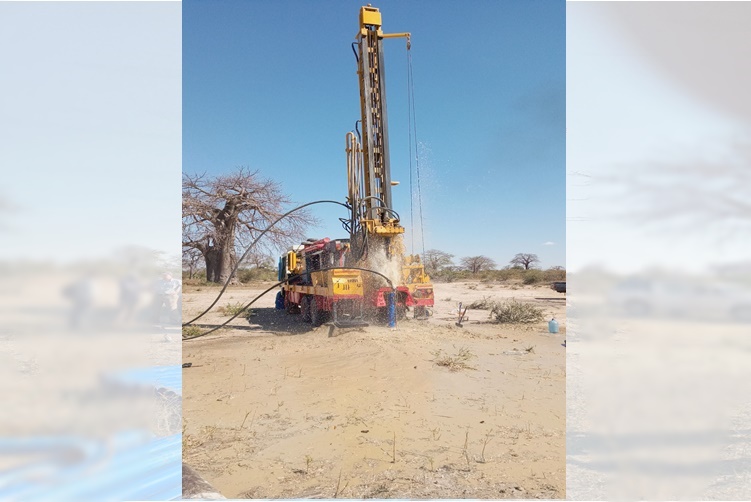Groundwater – a vital source of water for drinking and irrigation across sub-Saharan Africa – is resilient to climate variability and change, according to a new study conducted by an international team including Sokoine University of Agriculture (SUA).

A consortium of 32 scientists from across Africa and beyond carried out the research, published in Nature (International journal of science), which shows how groundwater replenishment depends upon heavy rainfalls and flood events, amplified by climate change. (link: https://www.nature.com/articles/s41586-019-1441-7)
Groundwater plays a central role in sustaining water supplies and livelihoods in sub-Saharan Africa due to its widespread availability, generally high quality, and intrinsic ability to buffer episodes of drought and increasing climate variability.
Professor Japhet J. Kashaigili (SUA), co-author of the study, said: “Groundwater offers a potential pathway to sustain increases in freshwater use required to achieve UN Sustainable Development Goals 2 (zero hunger) and 6 (safe water for all).”
“Our study reveals, for the first time, how climate plays a dominant role in controlling the process by which groundwater is restocked. This improved understanding is critical for producing reliable climate change impact projections and adaptation strategies.”
The research involved the collation of multi-decadal records of groundwater levels and rainfall to examine how the replenishment of groundwater has responded to variations in climate and geology. The team analysed observations compiled from nine countries across sub-Saharan Africa representing a range of climates from hyper-arid to humid.

The study shows that in humid areas groundwater is replenished primarily by rainfall that directly infiltrates the land surface, whereas in drylands it occurs predominantly by leakage from temporary streams and ponds. Local geology also plays a role in determining the sensitivity of rates of replenishment to changes in climate.
This research, supported by the UK research councils and the Department for International Development (DFID), also shows that, in drylands, the heavy rainfalls and flood events generating groundwater replenishment are commonly associated with climate variation phenomena such as El Niño and La Niña.
Professor Richard Taylor (University College London), co-lead on the study, said: “Previous regional-level assessments of groundwater resources using large-scale models have ignored the contribution of leaking streams and ponds to groundwater supplies, underestimating its renewability in drylands and resilience to climate change.”
“Knowledge of the replenishment process can inform strategies to enhance groundwater supplies. In drylands, where groundwater resources are often the only lasting source of freshwater, such strategies can further exploit the predictability of heavy rainfalls and flood events that generate groundwater, ”added Professor Taylor.
Notes to Editors
For more information or to speak to the researcher involved, please contact:
Prof. Japhet J. Kashaigili, Project Leader - Tanzania, +255754207117, jkashaigili@sua.ac.tz
Cuthbert, M, Taylor, R…Kashaigili, J., et al. (2019) Observed controls on resilience of groundwater to climate variability in sub-Saharan Africa, Nature, vol. 572: 230–234.
DOI: 10.1038/s41586-019-1441-7
About SUA (Sokoine University of Agriculture)
Sokoine University of Agriculture (SUA) was first established on the 1st July, 1984 by Parliamentary Act No. 14 of 1984 through the amendment of Parliamentary Act No 6 of the same year. Following repealing of the Act, the university is now operating through the Sokoine University of Agriculture Charter, 2007 through the broad framework of the Universities Act, 2005.
SUA is a public University based in Morogoro Tanzania. The university is located on the slopes of the Uluguru mountains.
SUA is best known for offering courses and programmes widely in a field of Agriculture, Veterinary Science, Forestry, Animal Science, Wildlife Management, Tourism Management, Environmental Science, Food Science, Natural Resources, Nutrition, Rural Development, since its establishment.
Website: www.sua.ac.tz




